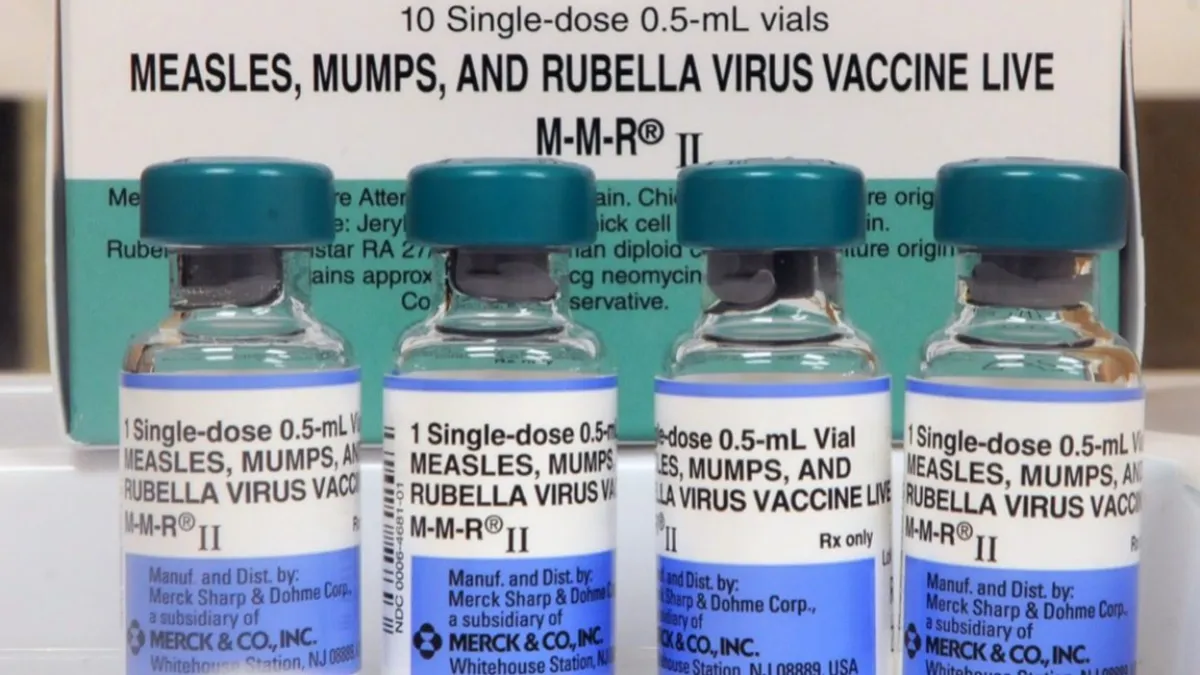
The United States has officially recorded over 300 measles cases just three months into 2025, surpassing the total yearly case counts for all years following 2019. The majority of this year’s cases stem from a significant outbreak that began in an undervaccinated county in West Texas in late January. This outbreak has since spread to neighboring states, including New Mexico and Oklahoma.
As of March 14, 2025, Texas reports a staggering 259 measles cases across 11 counties, with 34 hospitalizations and one tragic death of an unvaccinated 6-year-old girl. In New Mexico, there have been 35 reported cases across two counties, two hospitalizations, and one death of an unvaccinated adult who did not seek medical treatment prior to testing positive for the virus posthumously. The cause of this adult's death is currently under investigation. Meanwhile, Oklahoma has documented two probable cases linked to the ongoing outbreak.
In addition to Texas, New Mexico, and Oklahoma, 12 other states have reported at least one confirmed case of measles since the beginning of the year. These states include Alaska, California, Florida, Georgia, Kentucky, Maryland, New Jersey, New York, Pennsylvania, Rhode Island, Vermont, and Washington. According to the Centers for Disease Control and Prevention (CDC), this year alone has witnessed three separate measles outbreaks, defined as three or more related cases. As of March 13, the CDC reported a total of 301 confirmed cases, which does not include 36 new cases reported in Texas and two in New Mexico on the same day.
Since the year 2000, when health officials declared measles eliminated in the US due to successful vaccination initiatives, only three years have seen higher case numbers. These include 667 cases in 2014, 381 cases in 2018, and a staggering 1,274 cases in 2019—largely driven by significant outbreaks in New York. Measles is classified as eliminated if there is no continuous spread within the country for at least 12 months, which is different from eradication, where the incidence of the disease is permanently reduced to zero worldwide. Currently, smallpox and rinderpest are the only diseases to have been eradicated by humans.
Although measles transmission significantly decreased during the COVID-19 pandemic, health officials are increasingly concerned about the potential loss of the US's elimination status as the virus makes a comeback. Since 2019, the vaccination rates among kindergartners have dropped from the ideal target of 95 percent to just 92.7 percent. Last year, the US reported 285 measles cases, while 2023 recorded a mere 59 cases. However, with measles cases rising globally, unvaccinated Americans are at greater risk of contracting the virus while traveling abroad and subsequently bringing it back home, which is often a catalyst for outbreaks in the US.
On a global scale, the World Health Organization (WHO) and UNICEF have reported alarming figures regarding measles cases, particularly in Europe. The WHO's European Region, which includes 53 countries, saw an astonishing 127,350 measles cases in 2024, doubling the total from 2023 and marking the highest number since 1997. This resurgence can be traced back to declining vaccine coverage exacerbated by the COVID-19 pandemic. Vaccination rates have yet to recover to pre-pandemic levels, leading to an increase in cases since 2023. The highest incidence was reported in Romania, with 30,692 cases, followed closely by Kazakhstan with 28,147 cases.
As we face this resurgence of measles, WHO's regional director for Europe, Hans Kluge, emphasized the urgent need for increased vaccination efforts, stating, “Without high vaccination rates, there is no health security.” He called for every country to enhance its efforts to reach under-vaccinated communities. The measles virus is relentless, and so must be our commitment to combating it. This resurgence serves as a stark reminder of the importance of maintaining high vaccination rates to ensure the health security of the population.